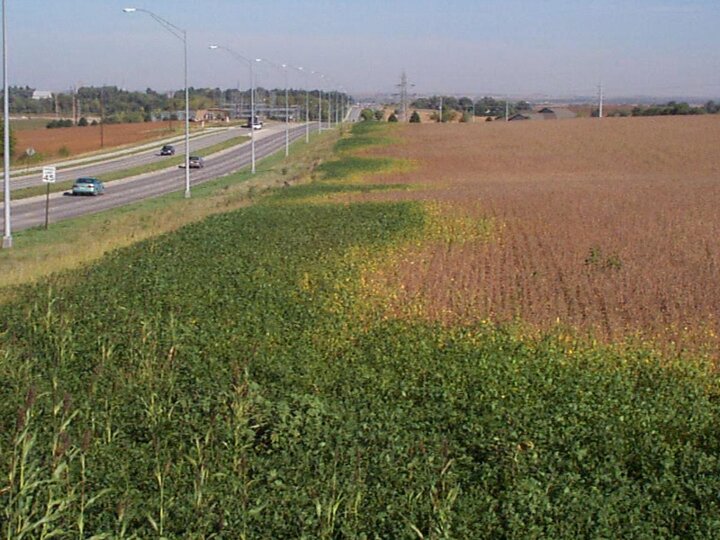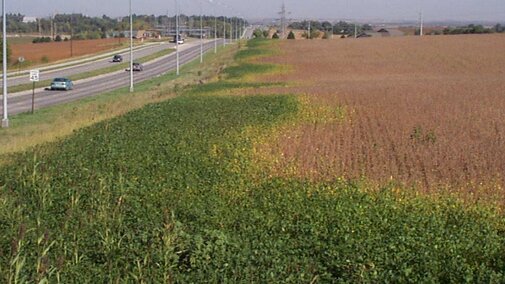Q: Daryl Obermeyer: With soybeans being sensitive to length of the night, will the mid day total darkness of the eclipse in southern Nebraska affect the maturing of the soybean plant?
A: No, but that is a perceptive question. Soybeans are indeed sensitive to the 24-hour day/night cycle, but are only sensitive to night length, not day length. In fact, soybean plants can measure the length of the night based on their leaves being able to perceive a "dusk" (i.e., sunset) signal as the starting point for that measurement.
This was shown in experiments conducted back in the 1920s. Soybean flowering was delayed if the night was interrupted by a flash of bright light, but not delayed if the day was interrupted by a period of darkness.
This is why in soybean fields on the edge of urban areas with street lamps producing near-sunlight levels of light through the night, the plants exhibit delayed flowering. For example, the street lamps on the north side of the university's East Campus can affect neaby plants; thus, we keep our soybean plants in nurseries at least 50 feet or more from each of the lamps.
Fortunately, a bright full moon does not have sufficient light intensity to affect soybean plants, though if you go out in a soybean field at night, you will see soybean leaves drooping downward. (This helps offset their "seeing" direct moon beams!)


